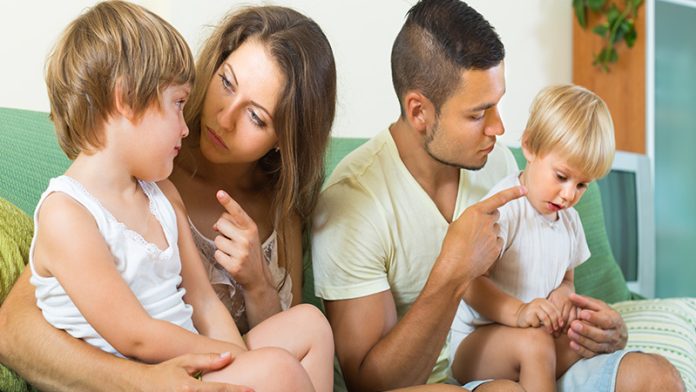
When we think of the ideal bond between a parent and a child; we usually think of the tightest and most loving bond possible in our life. We see a parent who cares about their child and who is invested in the child’s future. However, when we turn back to reality, we find that not every parent-child bond looks the same. We see variations of healthy and poor parenting. And while every parent child relationship is different and diverse in its own way. There are some clear parenting styles that leave an everlasting impact. Let’s explore the uninvolved parenting in a little bit of detail.
So, What is the Uninvolved Parenting Style?

As the name suggests, uninvolved parenting, also known as neglectful parenting, is the kind of parental behaviour where the parent is neither demanding from their child nor responsive towards the child’s needs. This style usually manifests in parents who have been raised by uninvolved parents themselves or are dealing with mental issues that make emotional attachments difficult. Economic and social stability are also factors that may influence the style of parenting adopted by parents. However, this style leaves a lot of emotional residue in the child and can be potentially damaging.
Types of Parenting Styles
Diana Baumrind, a clinical psychologist, first introduced the four parenting styles as we know them today. Parenting styles refer to a set of child-rearing practices adopted either consciously or unconsciously by parents which influence the quality of life of the child. There are four major parenting styles, namely, authoritarian, authoritative, uninvolved and indulgent/permissive. These styles usually fall in one of the quadrants of the demanding–responsive continuum.
The demanding continuum, i.e. the vertical line in the image, refers to the amount of expectations and demands that the parents have from their kids. And the responsiveness continuum, i.e. the horizontal line, refers to how involved the parent is to take care of the child’s comprehensive needs and reflects the parent’s availability in the child’s life. This gives us the following four parenting styles.
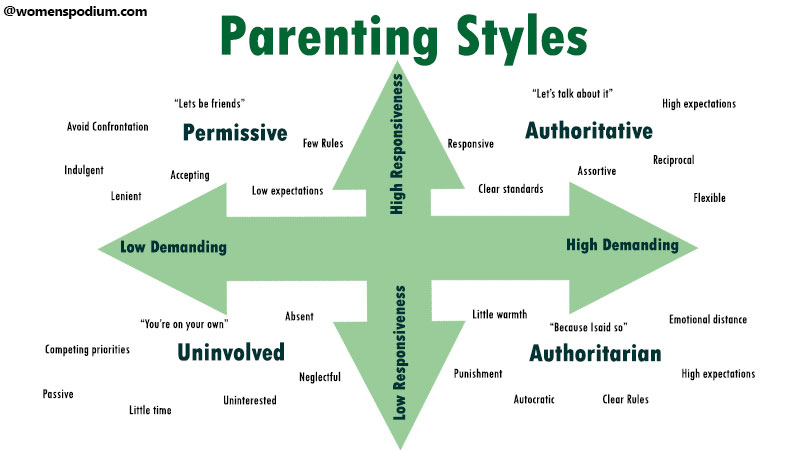
1. Authoritarian Style of Parenting
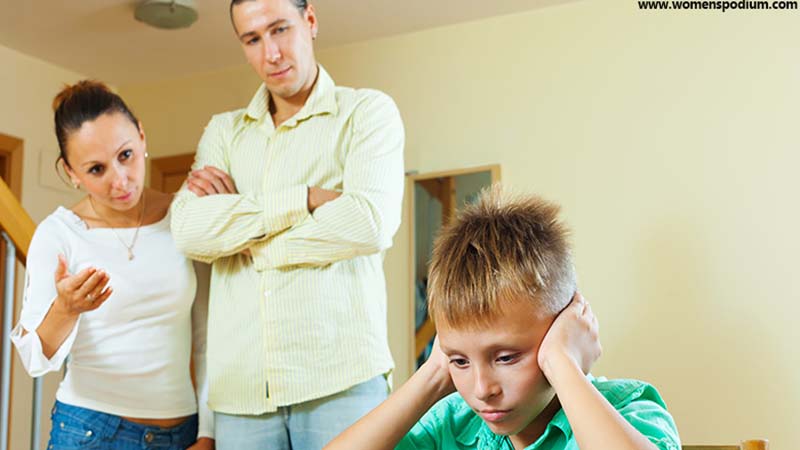
This style of parenting lies high on the demanding axis but very low on the responsive axis. These are the kind of parents who want their children to follow the rules and regulations and have a lot of demands and expectations from their child. However, these parents don’t really have the time to listen and make space for the child’s feelings and emotions. Such parents are often giving orders and threats, and this style establishes a clear parent-child hierarchy.
2. Authoritative Style of Parenting

This is arguably the best style of parenting, according to many researchers. This style ranks high on both the responsive as well as demanding axes. Therefore, this style is all about balance. Parents who adopt this style allow their kids the freedom to be themselves while encapsulating them in an understanding framework of ground rules. Children raised using this style trust their parents and can also think for themselves. They grow more emotionally stable and secure in their future relationships.
3. Permissive/Indulgent Style of Parenting
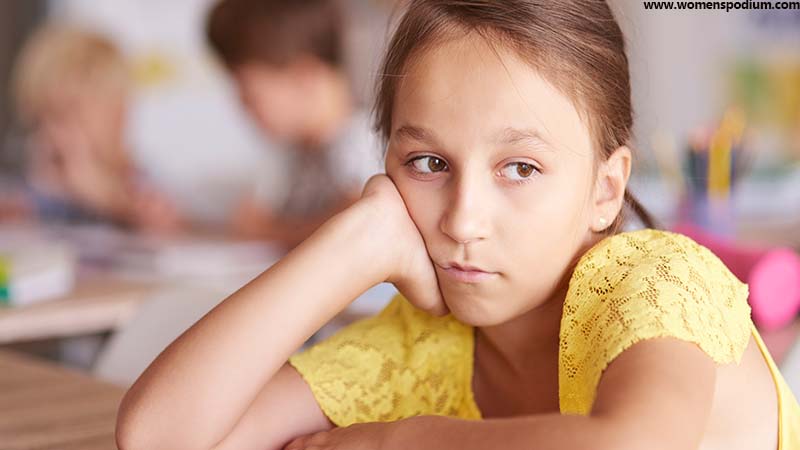
This style of parenting ranks very high on the responsive continuum but ranks very low on the demanding continuum. Here, all the decision making power is given in the hands of the child prematurely; and the parents tend to give in to each demand of the child. This parenting style can prove to be harmful to the child, and the child may take the parents for granted and indulge in decisions that can affect their life for the long term.
4. Uninvolved Style of Parenting

This style of parenting ranks low on both the responsive as well as the demanding axes. Such parenting styles are mostly adopted unconsciously; and the parent is as good as absent or non – existent in the child’s life. Children raised using this parenting style generally have little to no connection to their parents and usually grow up independently.
Also Read: Parents can find it easy to deal with kids when they follow these convenient steps to more effective parenting.
Signs of Uninvolved Parenting
Before we look at the signs of uninvolved parenting, it is important to note that parenting styles can overlap between any place on the given continuums. Just like we can learn parenting styles from our experiences; it is also possible to unlearn the negative parenting styles through varied mediums. Looking out for these signs of uninvolved parenting in ourselves or others with an open mind allows us to improve for ourselves as well as our children.
1. Absence in the Child’s Life
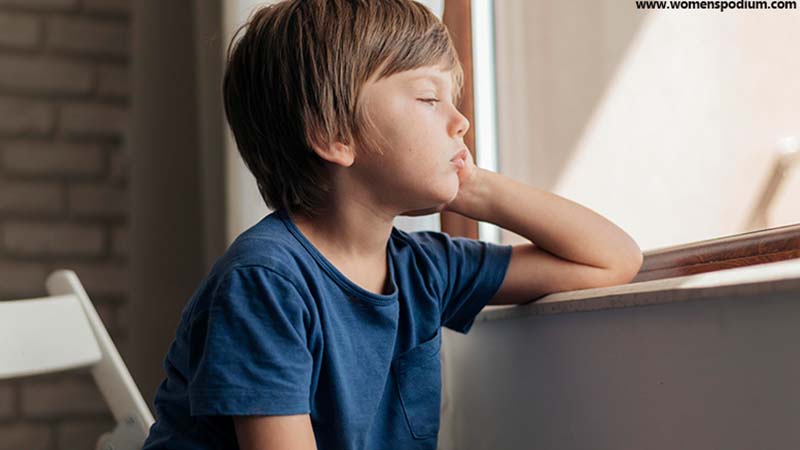
Absence in a child’s life doesn’t always mean physical absence. More often than not, it indicates emotional and psychological absence. Not caring for the activities that the child participates in or not being aware of a child’s mental and emotional state shows the lack of involvement of a parent very clearly. When the parents don’t feel invested enough in the child and start to drift apart from the child at a very young age, it is a sure red flag of uninvolved parenting.
2. Equating Financial Providence to Parenting

Sometimes, parents can get stuck by thinking that providing finance for their child ends their job. Not being available for the child and not having a framework of guidelines for the child while only providing finance is another red flag of an uninvolved parent.
3. Always Being Preoccupied
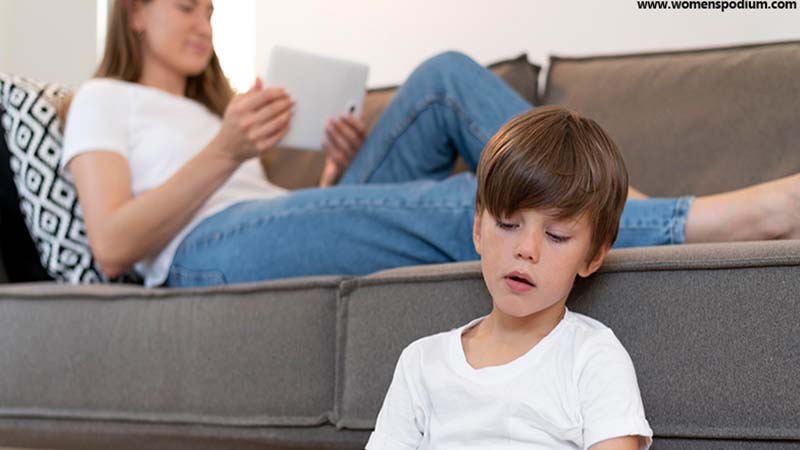
Whether it is work, social life or anything else, not making the child an integral part of the parents’ life shows the parent’s absence from the child’s life. This causes the child to drift apart and lose any or all emotional attachment with their parents.
4. Not Caring About the Child in General

We usually see two types of parents; some are hyper-vigilant, and some are least bothered about how their child’s life is progressing. Whenever parents don’t perform their role in the child’s life, it is a sure sign of uninvolved parenting.
Effects of Uninvolved Parenting
1. Psychological Damage
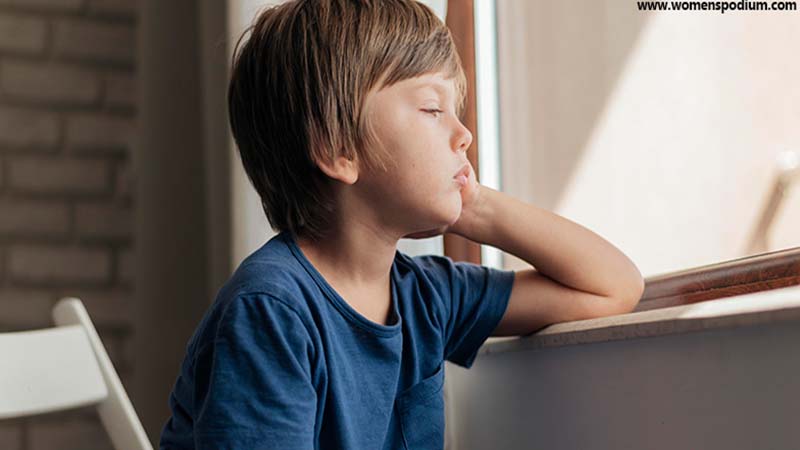
Research suggests children who grew up with uninvolved parents were at a higher risk of depression, anxiety and other mood disorders. Parenting forms the foundation of a child’s psyche; therefore, when a parent is uninvolved, it can cause a lot of adjustment issues for the child.
2. Lack of Social Skills

Confidence begins at home. Therefore, when the parents are not able to dedicate the time and effort needed to bring up a child, they leave scars on the child’s confidence, sense of worth and self-esteem. This causes the child to grow up with little to no social skills and affects their lives and relationships for the long term.
3. Stunted Emotional Development

Home is a safe space for emotional growth. However, uninvolved parenting hampers the development of a healthy self-concept, thereby causing kids to become overly indulgent or totally avoidant with their emotions. This causes long term problems in emotional perception, growth, and attachment as well.
Also Read: Growing rate of aggression in your child is a sign that proves you are making consequential parenting mistakes.
4. The Vicious Cycle

Arguably the greatest threat of uninvolved parenting shows up when kids of uninvolved parents become parents themselves. We, humans, tend to learn most of our parenting through our socio-cultural upbringing, which is heavily centered on the way our parents raised us. Therefore, children of uninvolved parents tend to become uninvolved parents themselves. Breaking out of this vicious cycle requires a lot of emotional and mental work on the part of an entire generation of children who decide to stop the cycle.
Uninvolved parenting can come through a lot of factors. The only good news is that it can always be unlearned. There is always time to make it up to your child as soon as possible.





